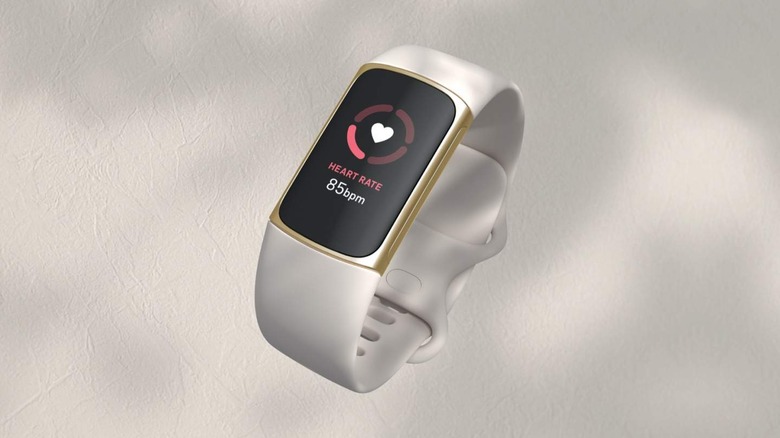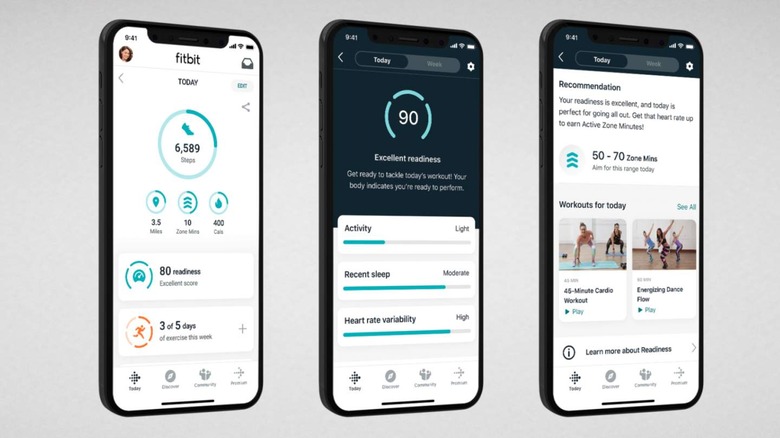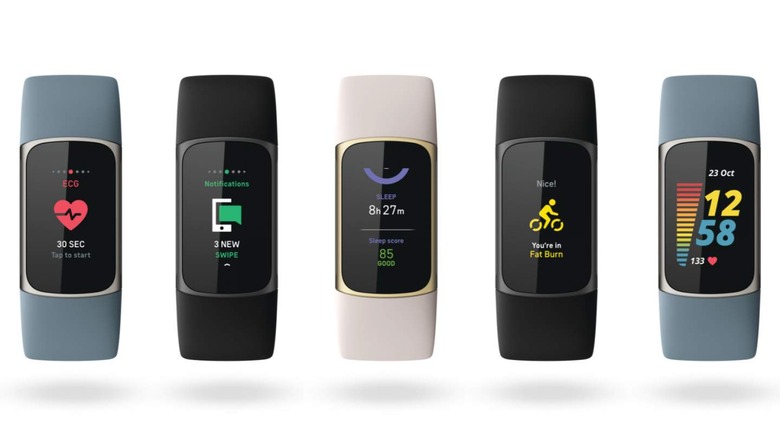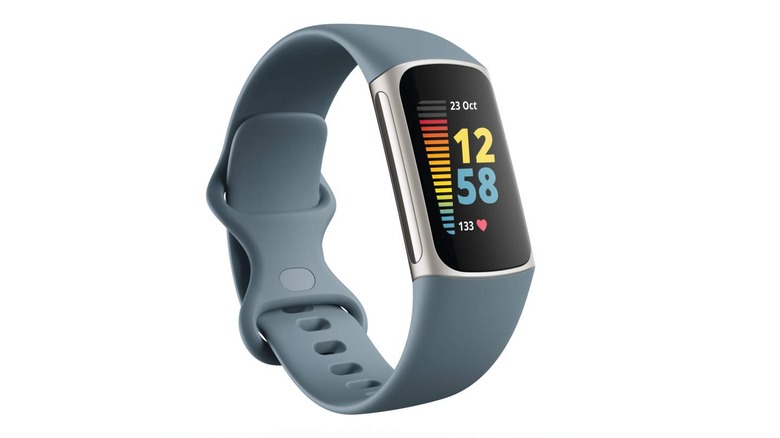Fitbit Charge 5 Tracks Stress, Will Tell You The Best Day For A Workout
Fitbit's latest fitness tracker has arrived, with the Fitbit Charge 5 borrowing health features from the company's smartwatches but packaging them in a smaller – and more affordable – wearable. Topped by a new touchscreen that's twice as bright as the old Charge 4, the Charge 5 now includes GPS, ECG, and EDA sensors.
It's slimmer and more streamlined than the Charge 4, too: 10-percent thinner than the old model, Fitbit says. The softer edges now have stainless steel side-panels, which also double as sensors for the EDA and ECG systems.

Despite the reduction in size, though, you should still get up to 7 days of battery life, depending on use. The ambient light sensor for the new AMOLED screen should help there a little, and there's a new always-on display mode so that you can always see the time, workout tracking metrics, and other details.
Flagship feature for the Charge 5 is Daily Readiness, which requires a Fitbit Premium subscription. It's designed to help balance workouts with recovery time, based on the principle that your overall fitness improves more rapidly if you have a mixture of high-intensity workouts and active recovery. Daily Readiness aims to make it easier to figure out which day should be for which of the two.

It's based on three factors: your level of activity and exertion, measured 24/7; your cumulative sleep over the past few days; and your heart rate variability. That all comes together in a score for physical preparedness for exercise each day, along with recommendations: if Fitbit thinks you're up to it, it might recommend some HIIT and a target Active Zone Minutes goal. Alternatively, it might suggest some guided meditation, yoga, or other relaxation.
Building on that is an EDA sensor, the first time the technology has been used on a Fitbit tracker since the company launched it on the Fitbit Sense last year. It scans the body for stress levels – measured through changes in the sweat glands on your fingertips – and helps reduce that over the course of a two minute session. Fitbit also has a new partnership with Calm, and will soon be offering Fitbit Premium subscribers access to relaxation content from there. That'll join the 300+ existing meditation and mindfulness sessions already on offer.

Also in the pipeline is an on-device ECG app, which will allow the Charge 5 to track signs of AFib (atrial fibrillation). It's designed for wearers aged 22 or over, and will produce a PDF report after each use that can be shared with a healthcare provider. Charge 5 also tracks heart rate 24/7, with notifications if you go above or below your usual range. There's SpO2 and VO2 max calculations, and Sleep Score, with premium subscribers getting more information and guidance on improving sleep quality.
As for smart features, the Charge 5 has 20+ different faces, supports Android and iOS devices, and shows smartphone notifications. You'll need to pair it with an Android device, though, if you want to respond to those notifications from your wrist. Android phones also get Google Fast Pair support.

The Fitbit Charge 5 is available for preorder from today, priced at $179.95. It'll ship this fall, with a six month trial of Fitbit Premium included; various silicone, Velcro, and leather band options will be available. Daily Readiness, meanwhile, will be added to Fitbit Sense, Versa 3, Versa 2, Luxe, and Inspire 2.
